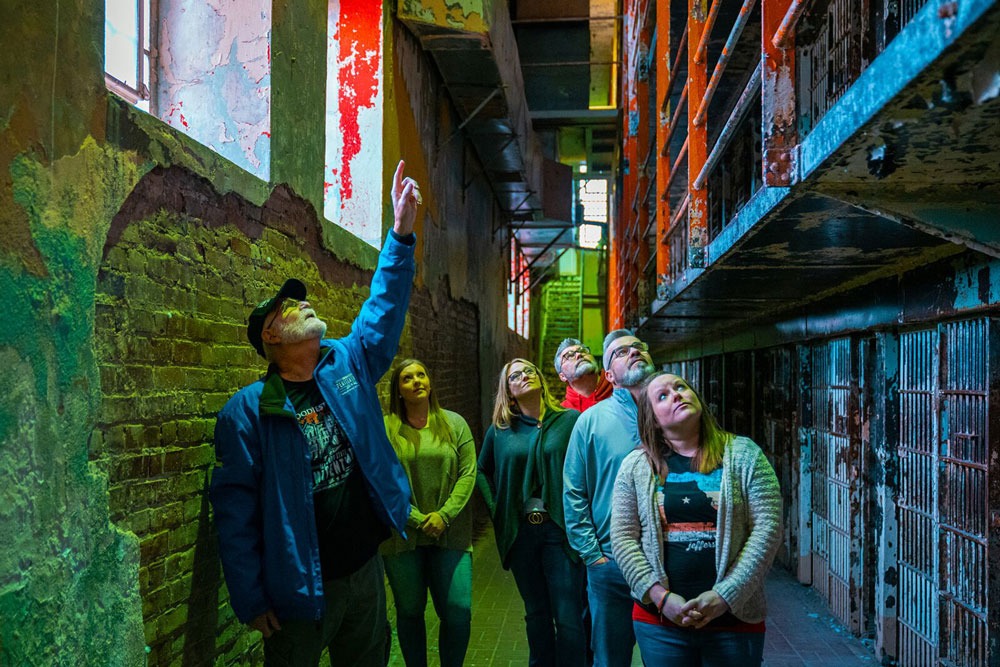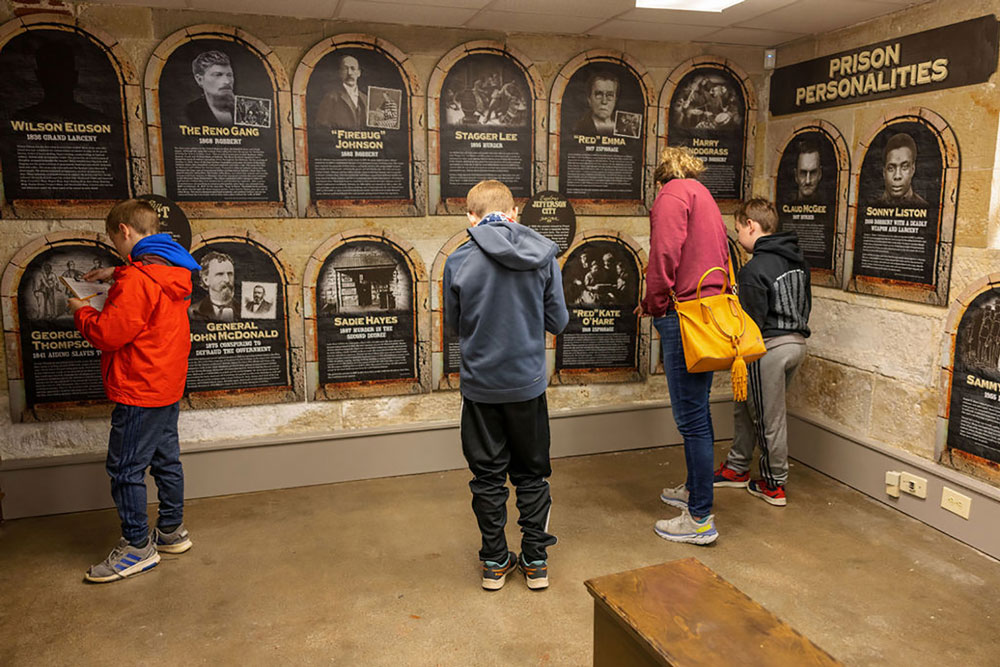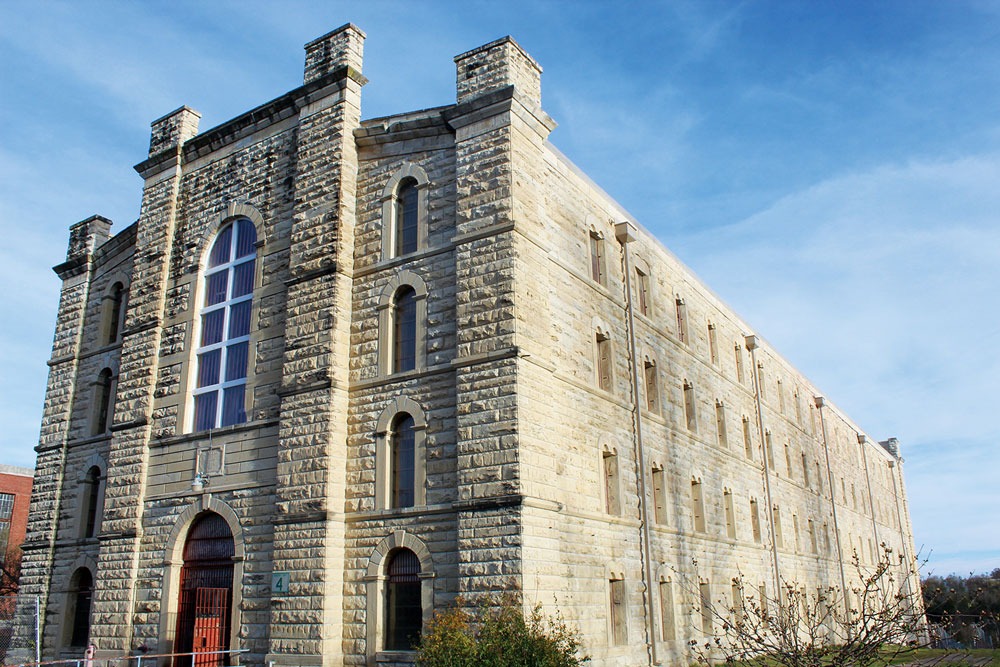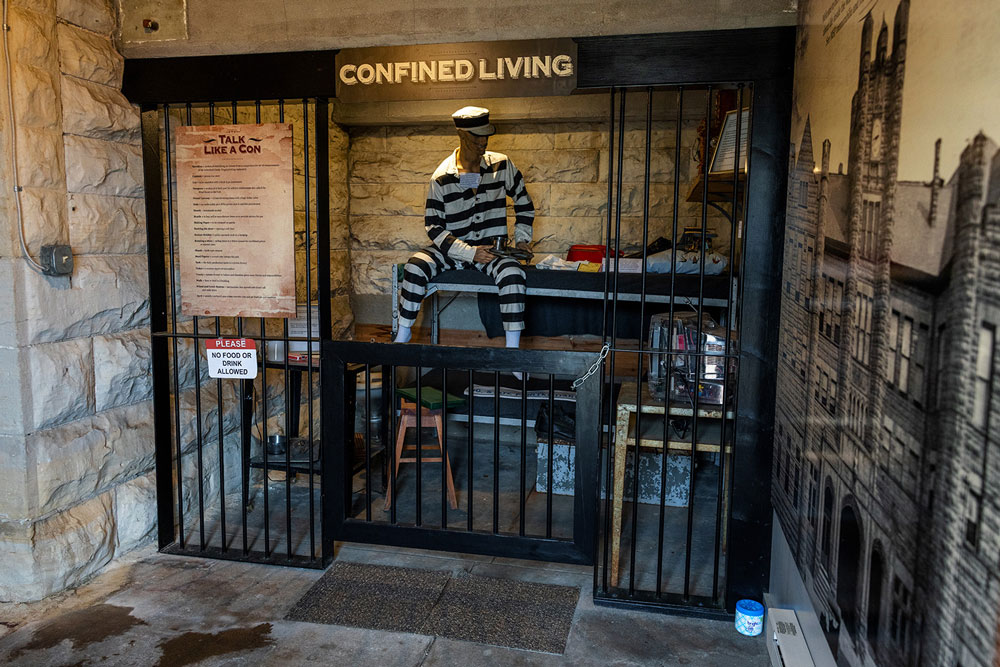PAID POST BY JEFFERSON CITY CONVENTION & VISITORS BUREAU
Voted the #1 Thing to Do in Jefferson City and recipient of the 2022 Travelers’ Choice on TripAdvisor, the Missouri State Penitentiary (MSP) is worth exploring in Missouri’s capital city. It was named the “Bloodiest 47 Acres in America” in 1967 by Time magazine and is a beloved treasure to history buffs and thrill-seekers alike. Guests walk through once-overcrowded housing units and the gas chamber where 40 inmates took their final breath. See why a trip to this infamous prison should be on your bucket list!

The Missouri State Penitentiary was the oldest continually operating prison west of the Mississippi River
The Missouri State Penitentiary received its first inmate in 1836 for stealing a watch. As the only prison closest to the Western Territories at the time, the penitentiary accepted any type of inmate, which led to severe overcrowding. At its peak in 1935, there were a recorded 5,300 inmates who resided on the property. Although Alcatraz is one of the most renowned prisons, it didn’t become a federal penitentiary until 1934 – MSP had already been in operation for 98 years. Surrounded by limestone walls with Jefferson City growing around it, MSP operated for 168 years until it decommissioned in 2004.

Several notorious inmates walked these halls
During MSP’s years in operation, thousands of inmates roamed the hallways. Notable names include boxing legend Charles “Sonny” Liston, notorious bank robber Charles Arthur “Pretty Boy” Floyd, and the assassin of the late Dr. Martin Luther King Jr. – James Earl Ray. Previous inmates are not glorified, rather, guides share the history, their stories and how they have shaped the world we live in today. Some inmates left the penitentiary for successful careers, while others chose a life of more crime.

Visitors have full access to the oldest housing unit once again
In May 2019, an EF-3 tornado went through the penitentiary, which left Housing Unit #4 without a roof for two years. Tour guests were only granted access to the main floor and the dungeon cells while the upper walks required further cleanup. A new roof was installed in the summer of 2021 and all debris has been removed from the cells as of spring of 2023. Due to these preservation efforts, visitors now have full access to all floors and the catwalks in this fan-favorite housing unit!

The MSP Museum adds another dimension to the prison experience
With the purchase of a tour ticket comes free admission to the Missouri State Penitentiary Museum ($2 admission without a tour). The museum houses a collection of prison memorabilia from its time in operation. Guests are greeted with a replica cell, inmate artwork, contraband and more! It is in the lower level of the Col. Darwin W. Marmaduke House (former warden’s home) and adds another layer to the story of the infamous prison.

The prison goes bump in the night… all year long
Contrary to popular belief, the penitentiary is haunted year-round. Whether you want to learn the ghostly stories of inmates that some say still roam the halls or roll up your sleeves and learn to hunt or investigate paranormal activity, ghost and paranormal tours are a great way to experience the otherworldly side of MSP. There’s a reason why MSP is featured on popular shows like Ghost Hunters, Destination Fear, Portals to Hell and many others. See for yourself why people return year after year hunting for the unexplainable!
Tours of the Missouri State Penitentiary are offered March-November. Lock up your tour today!
Traveling to Jefferson City, Missouri
By car: fastest route is 6+ hours via I-55 S
By plane and rental car:
- Chicago O’Hare International Airport (ORD) to Kansas City International Airport (MCI) | 2.5-hour drive
- Chicago O’Hare International Airport (ORD) to St. Louis Lambert International Airport (STL) | 2-hour drive
- Chicago O’Hare International Airport (ORD) to Columbia Regional Airport (COU) | 26-minute drive
This article has been supplied by Jefferson City Convention & Visitors Bureau, a paid advertiser. The editorial staff of Chicago magazine had no role in this post’s preparation.


